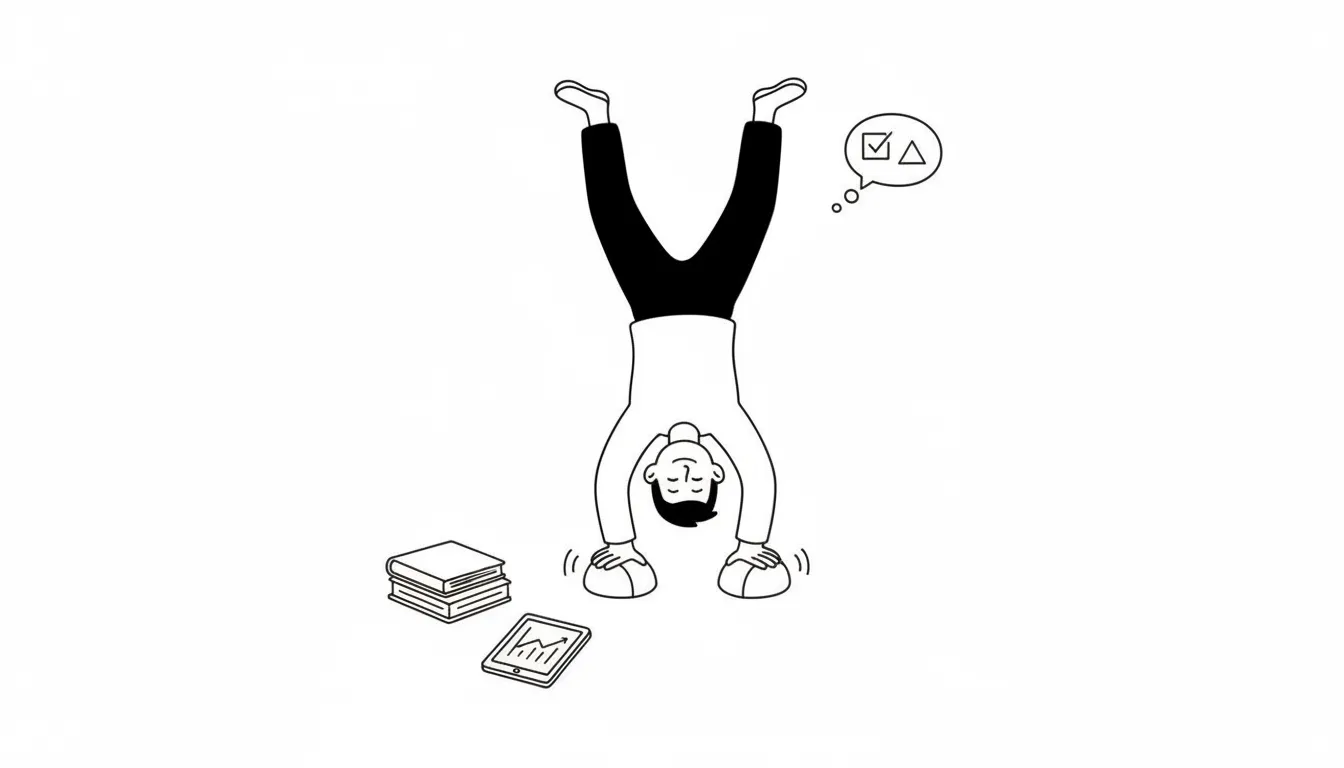
Inversions in English Grammar
Inversions in English are a cool grammatical point for C1 and C2 students. Here’s all you need to know!

Table of contents
I love English grammar. You know it. I know it. My wife knows it. Everybody who knows me knows it. I don’t think English teaching and learning should be based mostly on grammar, but I still like understanding it and being able to explain it. And this grammatical point, inversions, is one of my favourites. This is so because it’s pretty advanced, but easy to understand and, once you get it, you’ll be like 🤯. I promise. So keep on reading, because I’m going to let you know exactly what inversions are in English, when we use them and how you can use them.
What is an «inversion»?
The term inversion refers to two different grammatical operations:
- Using a question form of the main verb:
Not only did I fail the exam, but also got the worst score of my life.
- Changing the normal positions of verb and subject:
On the TV stood a peculiar figurine.
Types of inversion
Inversions after negative adverbials
This happens when the adverbial occurs at the beginning of a clause and usually in formal contexts, with present perfect, past perfect or modals (can or could). And it’s determined by the word or phrase at the beginning of the sentence. For example:
- Time expressions: never, rarely, seldom.
Rarely can a teacher relax in the afternoons. (modal: can)
Seldom have the students behaved so badly. (present perfect)
Never had I had so much work to do. (past perfect)
- Time expressions: hardly, barely, scarcely, no sooner, for events that quickly follow another in the past. Note the words used in the contrasting clause. This happens typically with past perfect or past simple (no sooner).
Hardly had I parked the car, when you rang me. (past perfect)
Scarcely had she finished cooking when her son arrived home. (past perfect)
No sooner had I left the shop than I realised the item was faulty. (past perfect)
No sooner was she on her way to work than it started raining. (past simple)
- After only: combined with other time expressions and usually with the past simple.
Only after hanging up did I remember that I had forgotten to congratulate her.
Only then did I realise she had been kidding.
Only when he started crying did she understand how he really felt.
- Phrases containing no/not: on no account, under no circumstances, at no time, in no way, on no condition, not until, not only…(but also), etc.
On no condition are youto park in front of the emergency door.
Not until she told me did I notice that she’d had her hair cut.
- After little: when little has a negative or restrictive meaning.
Little did she imaginewhat his real intentions were.
Inversions after so/such with that
It takes place when so/such occurs at the beginning of a clause.
- After so when the main verb is be: used for emphasis.
So exhausting was the race that his knees were not responding properly anymore.
- After such when the main verb is be: it means so much/so great.
Such was the pain in his ankle that he could not carry on with the race.
Inversions in Conditional Sentences without if
If you (should) have any further questions, please contact me. (first conditional)
Inversion: Should you have any further questions, please contact me.
If we were to visit you, could you put us up? (second conditional with were to + infinitive)
Inversion: Were we to visit you,could you put us up?
If he had found out what you did, he would have fired you. (third conditional)
Inversion: Had he found out what you did,he would have fired you.
Inversions after as
Typically occurs in formal or written language.
We were fed up with all the noise, as were most of our neighbours.
Inversions after so, neither, and nor
This happens in echoing statements, agreeing or disagreeing.
A: I’ll have a coke, please.
B: So will I.
Source:
Adapted from Vince, M. & Sunderland, P. (2003). Advanced Language Practice. Oxford: Macmillan
Mariana Hernandez says:
Quiero talleres por favor